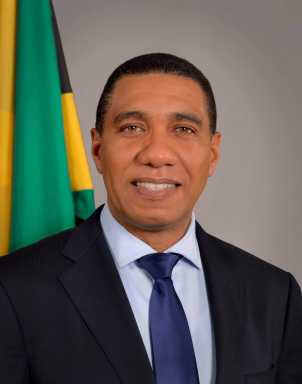Listeners:
Top listeners:
-
play_arrow
RadioJLR Just Press Play
New York’s economy has always been shaped by power. In one era, it came from labor unions and factory floors. In another, from trading desks and corporate towers. But today, as inequality deepens and public trust wears thin, we’re confronted with a basic question: who is the economy for?
For more than two decades in the State Senate, I’ve tried to answer that question through legislation, oversight, and budget negotiations. I represent a Brooklyn district where working families make the city run, but where they are too often shut out of the benefits of growth. This tension—between the value produced by everyday New Yorkers and the rewards concentrated elsewhere—has only grown more stark.
When the gains of our economy are disproportionately captured by a small group of firms and investors, and when our public dollars reinforce that pattern, we have a responsibility to act.
Public investment is not a neutral exercise. It reflects a set of priorities. We subsidize stadiums while subway stations crumble. We grant tax abatements to luxury developments while small landlords struggle to maintain basic infrastructure. We allow city and state contracts to cycle through the same corporate vendors while Black- and Latino-owned businesses are told to wait their turn.
Much of my work in Albany has focused on shifting those priorities. I’ve advanced legislation to strengthen access to capital for minority- and women-owned businesses. I’ve sponsored bills to improve how the state tracks and enforces equity in contracting. I’ve pushed for energy policy that does not just reduce emissions, but lowers costs for working-class households. The state’s climate goals mean little if families in East Flatbush or the South Bronx are left paying more for less reliable service.
In 2023, I helped lead efforts to expand community solar programs, allowing lower-income households to benefit directly from the energy transition. I’ve worked on green jobs training programs that prepare young people for careers in infrastructure, technology, and the trades—not just degrees that come with debt.
But even these wins feel incomplete when measured against the size of the problem. Small businesses, especially in communities of color, still face steep barriers to credit and procurement. Public housing continues to deteriorate while capital funds remain tied up in bureaucracy. Our pension funds—massive as they are—remain tethered to underperforming or politically toxic investments, as if no alternative exists.
That’s why I joined recent calls for the State Comptroller to divest public pension dollars from Tesla. The issue is not just stock volatility or Elon Musk’s behavior. It’s whether the public sector should reward companies that defy labor norms, undercut sustainability goals, and openly attack democratic values. Our investments must align with our ethics—and reflect a commitment to long-term value over short-term hype.
This principle extends beyond any one company. We need clearer standards for where our public funds go. That means more robust environmental, social, and governance (ESG) criteria. It means transparency around fund managers, consultants, and fees. It means actively seeking investments that build housing, improve broadband access, expand child care, and create jobs in the neighborhoods that need them most.
Budget justice is not a slogan. It is a framework. And it demands we look not just at how much we spend, but who benefits.
As Chair of the Senate Energy Committee, I’ve seen how quickly state agencies and private utilities move when there is pressure from capital markets—and how slowly they move when accountability is only measured in hearings and audits. The public sector must learn to think with the urgency of private industry, but with values that serve the public good.
We can do this. We can modernize procurement, invest in green infrastructure, and partner with mission-driven lenders and community development institutions. We can fund startups that hire locally, and nonprofits that solve problems at scale. We can make data public and spending traceable. None of this is radical. It’s overdue.
Too often, New York’s working class is treated as an afterthought—essential during crises, expendable in recovery. A just economy flips that script. It recognizes that dignity is not a derivative of profit. It’s the starting point.
This is the work I’ve tried to do throughout my career. Not from the podium, but from budget tables, committee rooms, and site visits. Shifting from Wall Street to Main Street is not about punishing success. It’s about ensuring that prosperity in this city is not defined by ZIP code or zoning map.
The city we want—resilient, fair, and functional—won’t come from waiting on the next tech boom. It will come from investments that meet people where they are, and policies that follow through.
We have the tools. What we need now is the will.
State Senator Kevin Parker represents the 21st District in the New York State Senate, where he serves as Chair of the Energy and Telecommunications Committee and leads efforts to advance economic and environmental equity across the state.
Written by: Adm
Similar posts
© 2025. All Rights Reserved by Radio-JLR



Post comments (0)